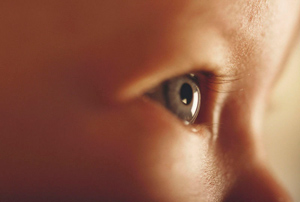Supporting Early Brain Development during Brain Awareness Week and Beyond
Print This Post Do you realize that supporting brain development is one of the most significant actions you can take as an adult to ensure that young children have a healthy start?
Do you realize that supporting brain development is one of the most significant actions you can take as an adult to ensure that young children have a healthy start?
Neuroscience research clearly shows that the brain is far from developed at birth. During the first years of life, the brain makes and refines networks of connections that control everything that happens in a child’s life, from breathing to language to reading and relationships.
Because the brain is still developing in the early years, experience plays a crucial role in shaping the child’s brain. Experiences that occur regularly strengthen neural networks.
Children who grow up in supportive and responsive families, have their physical and emotional needs met, attend high-quality early care and learning programs, and have adequate opportunities for free play and exploration develop networks of connections that will help them succeed in school and in later relationships.
Children raised in deprived, unresponsive, or abusive settings develop brain wiring that reflects negative experiences.
Brain Awareness Week, an initiative of the Society for Neuroscience, presents an immense opportunity to ensure that everyone who touches the lives of Georgia’s children—from parents and child-care professionals to policymakers and legislators—understands how adults influence early brain development. Here are a few practical things that your Family Connection collaborative can do to raise awareness of early brain development in your community:
- Introduce your community to Better Brains for Babies. Better Brains for Babies (BBB) is a public-private initiative that raises awareness of the importance of early brain development. The BBB website has a wealth of information about the brain, including ideas for public policies that support early brain development.
- Invite a trainer to speak. BBB has a cadre of trainers statewide who are available to speak to individuals and groups about brain development. Hosting a trainer at a civic club, local government meeting, or Family Connection collaborative meeting is an effective way to increase awareness about early brain development.
- Encourage positive parent-child interaction. Beginning very early, babies expect parents and other caregivers to respond to them. A well-known research project called the Still Face Experiment shows how important responsive adults are for children. In the experiment, mother and baby faced each other. The babies became extremely upset within only a few minutes when the mother was unresponsive. Imagine how much more stress babies experience when depressed parents rarely respond to their cries. Community strategies that educate parents, encourage parent-child interaction, and help families find mental health support can help parents overcome barriers to positive interaction with their babies.
- Reduce toxic stress. Families who face chronic poverty, homelessness, family illness, and other toxic stresses often do not have the time or knowledge to respond sensitively to young children’s needs. Those children are more likely to experience toxic stress, which can delay brain development and lead to hyper-reactivity and extreme aggression. Community supports for families in chronic poverty can lessen this toxic stress on young children’s developing brains.
- Teach young children how to manage stress. Not all stress is harmful to the brain. Young children need opportunities to learn how to handle stress with the support of loving adults. For toddlers, not getting a cookie when they want one can be a stressful situation. Adults who do not give in to toddlers’ tantrums are actually giving them valuable practice in regulating their stress. This skill will come in handy when they face more challenging situations later in life. Adults who protect children from any stress, no matter how small, do not help them learn this valuable life skill.
- Provide time and space for play. Play is one of the most valuable ways to build brain connections, but too many children do not have enough time to explore and play on their own. Help parents and caregivers understand children’s need for play, and build a community full of resources to support that play. Parks, playgrounds, toy-lending libraries, high-quality early learning programs, and organized play groups can be valuable community resources to support brain development through play.
- Develop policies and practices that support healthy brain development. Small changes to community policies and practices can sometimes make a big difference to the developing brain. For example, research shows that breastfeeding promotes brain development. Businesses that provide dedicated, comfortable spaces for nursing mothers and their babies are taking a small step to support healthy brain development—and are sending a clear message that the well-being of young children is important to the community.
Help others recognize the importance of early brain development, and encourage your community to support young children and healthy brain development. Together, we can make a difference.
Diane Bales is an Associate Professor and Extension Human Development Specialist in Child and Family Development at The University of Georgia. She is co-leader of the statewide Better Brains for Babies initiative. For more information and resources on brain development (including videos, posters, and developmental milestones brochures), visit the BBB website, or contact Diane at dbales@uga.edu.
